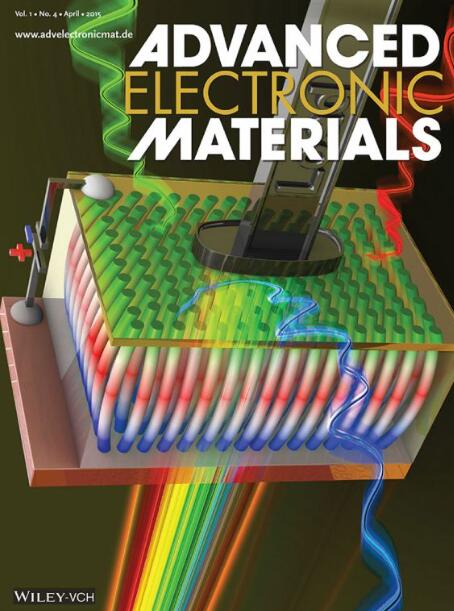用于可重构智能表面低复杂度诊断的非均匀时空编码调制
IF 5.3
2区 材料科学
Q2 MATERIALS SCIENCE, MULTIDISCIPLINARY
引用次数: 0
摘要
可重构智能表面(RISs)通过提供对电磁波传播的细粒度和动态控制,已成为下一代无线通信的关键推动者和有前途的技术。然而,在RIS辅助系统中实现最佳和可靠的性能关键取决于对故障RIS元件的准确诊断。本文提出了一种基于非均匀时空编码调制的新型RIS诊断方法,该方法仅使用幅度光谱测量进行故障检测,从而消除了复杂的相位恢复、相干检测或信道估计的需要。该方法包括在所有RIS元素中应用一个共同的时间编码序列,同时用一个唯一的、非均匀的频率单独调制每个元素。这在反射信号中的谐波分量和各自的RIS元素之间建立了一对一的对应关系。通过分析这些谐波在其指定调制频率处的测量谐波幅值分布的偏差,可以准确地识别出故障元件。仿真和实验结果都表明,该方法能够以最小的测量复杂度可靠地检测出故障的RIS元件,为现有的诊断技术提供了一种计算效率高的替代方法。本文章由计算机程序翻译,如有差异,请以英文原文为准。
Non‐Uniform Space‐Time‐Coding Modulation for Low‐Complexity Diagnostics of Reconfigurable Intelligent Surfaces
Reconfigurable intelligent surfaces (RISs) have emerged as a key enabler and promising technology for the next‐generation wireless communications by offering fine‐grained and dynamic control over electromagnetic wave propagation. However, achieving optimal and reliable performance in RIS‐assisted systems critically depends on the accurate diagnostics of faulty RIS elements. This paper proposes a novel RIS diagnostics method based on non‐uniform space‐time‐coding modulation that enables fault detection using amplitude‐only spectral measurements, eliminating the need for complex phase retrieval, coherent detection, or channel estimation. The approach involves applying a common time‐coding sequence across all RIS elements, while individually modulating each element with a unique, non‐uniform frequency. This establishes a one‐to‐one correspondence between the harmonic components in the reflected signal and the respective RIS elements. Faulty elements can be accurately identified by analyzing deviations in the measured harmonic amplitude distribution of these harmonics at their assigned modulation frequencies. Both simulation and experimental results demonstrate that the proposed method reliably detects faulty RIS elements with minimal measurement complexity, offering a computationally efficient alternative to existing diagnostic techniques.
求助全文
通过发布文献求助,成功后即可免费获取论文全文。
去求助
来源期刊

Advanced Electronic Materials
NANOSCIENCE & NANOTECHNOLOGYMATERIALS SCIE-MATERIALS SCIENCE, MULTIDISCIPLINARY
CiteScore
11.00
自引率
3.20%
发文量
433
期刊介绍:
Advanced Electronic Materials is an interdisciplinary forum for peer-reviewed, high-quality, high-impact research in the fields of materials science, physics, and engineering of electronic and magnetic materials. It includes research on physics and physical properties of electronic and magnetic materials, spintronics, electronics, device physics and engineering, micro- and nano-electromechanical systems, and organic electronics, in addition to fundamental research.
 求助内容:
求助内容: 应助结果提醒方式:
应助结果提醒方式:


